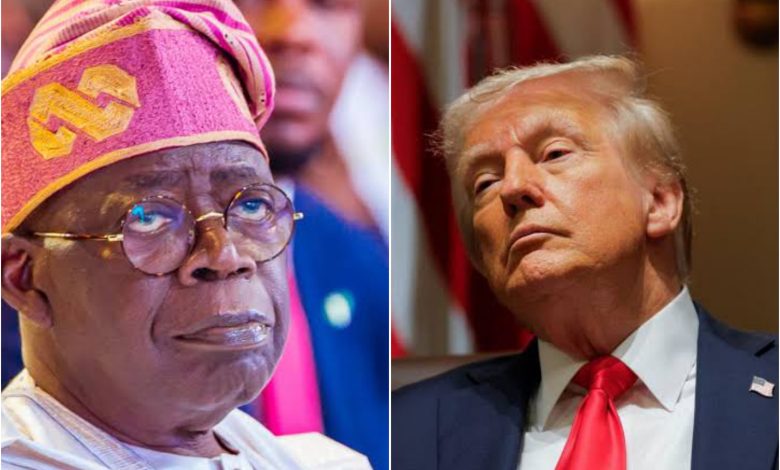
Fresh details have emerged linking the recent visa clampdown on Nigerians by former U.S. President Donald Trump to Nigeria’s refusal to accept asylum seekers—particularly deportees from American prisons.
Minister of Foreign Affairs, Ambassador Yusuf Tuggar, made part of the revelation while speaking on Channels Television’s Politics Today on Thursday evening.
Tuggar disclosed that the U.S. had been pressuring African countries, including Nigeria, to receive Venezuelan deportees, many of whom are ex-convicts.
He described the request as unjust.
“You have to also bear in mind that the US is mounting considerable pressure on African countries to accept Venezuelans to be deported from the US, some straight out of prison,” Tuggar said.
“It will be difficult for a country like Nigeria to accept Venezuelan prisoners into Nigeria. We have enough problems of our own. We cannot accept Venezuelan deportees to Nigeria, for crying out loud. We already have 230 million people. You will be the same people that would castigate us if we acquiesce to accepting Venezuelans from US prisons to be brought in,” he added.
The minister’s comments come amid speculation that Trump’s imposition of a 10 per cent tariff on Nigerian exports, alongside the new U.S. visa restrictions, were retaliatory responses to Nigeria’s stance on asylum deportees and its recent outreach to BRICS nations.
Tuggar, however, dismissed the notion that the tariff hike was directly linked to President Bola Tinubu’s attendance at the BRICS summit in Brazil.
“The issue of tariffs may not necessarily have to do with us participating in BRICS,” he said.
On Tuesday, the U.S. Embassy in Nigeria revised its visa issuance policy, reducing validity for Nigerians to a single-entry visa lasting just three months. While the embassy claimed the change was based on visa reciprocity, Tuggar refuted this.
“The claim of reciprocity is false,” he said. “We issue them five-year multiple entry visas, the same way that they issue regular travellers five-year multiple entry visas.”
He explained that Nigeria had only modified its system by introducing online electronic visas to improve efficiency.
“What Nigeria has done that differs is simple. We used to have a visa-on-arrival that wasn’t running efficiently. We introduced these online electronic visas so that it saves you time.”
According to diplomatic sources, Washington has been lobbying several countries to serve as temporary host nations for asylum seekers while their cases are processed—a period that could last up to seven years. While some countries have conceded to this arrangement, Nigeria has remained firm in its rejection.
Tuggar further warned that yielding to the U.S. request could open the floodgates for more deportations in future.
“The issue of accepting Venezuelan deportees, honestly, I don’t think is something that Nigeria is in a position to work with. And I think it would be unfair to insist that Nigeria accepts 300 Venezuelan deportees. Maybe that might just even be the beginning.”
Observers say the Trump administration’s pressure tactics—often characterized by punitive measures such as trade sanctions and visa restrictions—were part of a broader strategy to gain leverage in diplomatic negotiations. The visa restrictions, many believe, are being used to draw Nigeria back to the negotiation table.
Since assuming office, Trump has signed a raft of executive orders to expedite the deportation of undocumented migrants, many of whom are asylum seekers. In a widely condemned move, the U.S. also pushed for the deportation of non-nationals to third-party countries.
African nations, including Libya, Rwanda, South Sudan, and Djibouti, were reportedly identified as target destinations, alongside Central American states like El Salvador and Panama. A few of these countries have already received deportees under such arrangements.
The U.S. was also said to have requested electronic visa access for its citizens seeking entry into Nigeria, without visiting Nigerian embassies. But sources familiar with the talks said Nigeria turned down the proposal, citing the lack of similar privileges for its own citizens in the U.S.
In its revised visa policy, the U.S. embassy listed additional conditions Nigeria must meet to qualify for improved visa reciprocity, including the issuance of secure travel documents, effective visa overstay management, and the sharing of criminal and security data with American authorities.
It is understood that Washington also seeks access to Nigeria’s criminal database in order to identify and deport Nigerian nationals with prior criminal records currently residing in the United States.

